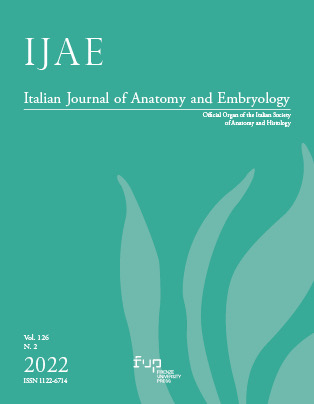Role of extracellular vesicles derived by human gingival mesenchymal stem cells in cardiomyocytes acute hypoxia
Published 2022-12-27
Keywords
- extracellular vesicles,
- human gingival mesenchymal stem cells,
- cardiomyocytes,
- acute hypoxia
How to Cite
Abstract
Hypoxia has an impact on pathological conditions of different tissues and especially on the heart where it can have different consequences depending on the duration of exposure to the hypoxic state. Acute hypoxic exposure can result in reversible acclimatization in heart tissue, maintaining a good systemic oxygen supply, while chronic hypoxic exposure leads to tissue damage exacerbating hypoxia-induced cardiac dysfunction. Extracellular vesicles (EVs) are small membrane vesicles, of the order of nanometers, secreted by different cell types. EVs are mediators of intercellular communication in both physiological and pathological conditions. EVs produced by oral-cavity-derived Mesenchymal Stem Cells (MSCs), including human gingival mesenchymal stem cells, have pro-angiogenic and anti-inflammatory effects. For this reason, the EVs can be identify as a new therapeutic potential for tissue regeneration. The aim of the present work was to evaluate the effect of treatment with EVs produced by human gingival mesenchymal stem cells (hGMSCs) on an in vitro model of HL-1 cardiomyocytes cultured under acute hypoxia state (0,2% hypoxia) followed by normoxia conditions. The HIF-1α expression was downregulate with EVs treatment. EVs could represent an innovative platform to prevent the hypoxic damages.


